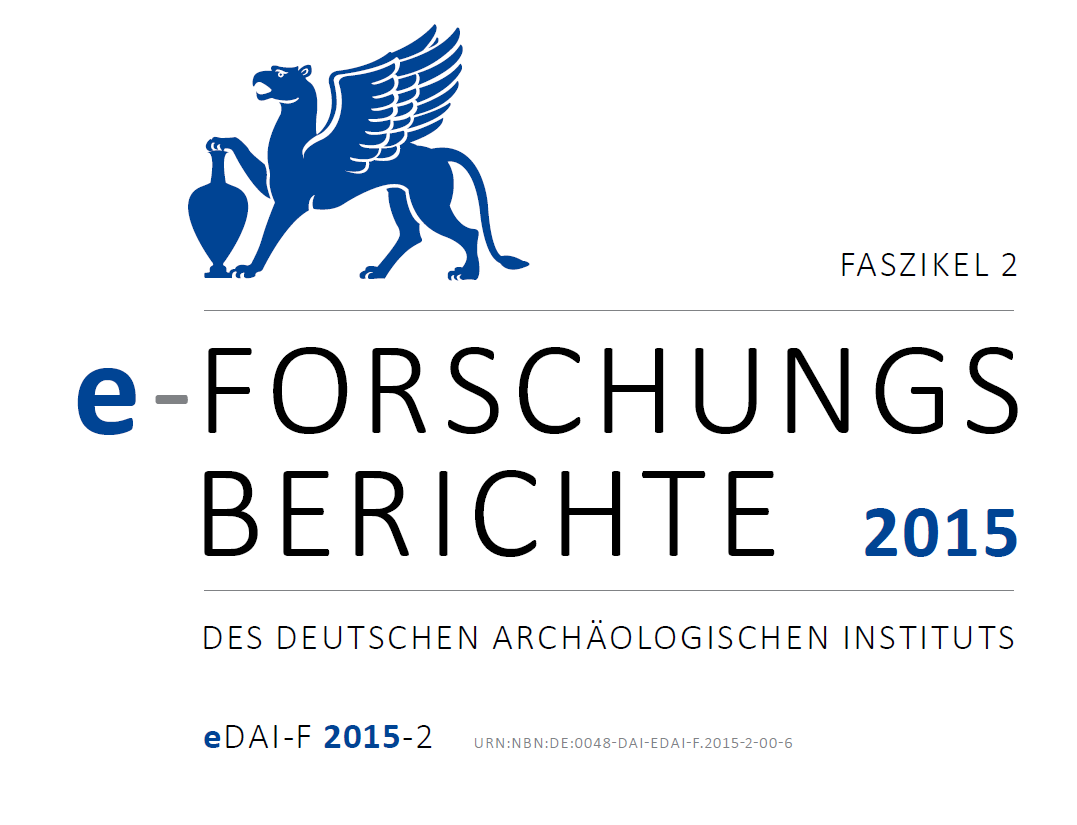Draʿ Abu el-Naga, Ägypten: Untersuchung der Grabtempel der Hohenpriester des Amun Ramsesnacht und Amenophis (K93.11/K93.12)
https://doi.org/10.34780/2a9l-c2l9
Resumo
During the last two seasons the excavation and architectural survey as well as the conservation of the mud brick structures (the latter funded by the Cultural Heritage Preservation Programme of the Federal Foreign Office) have been continued. The archaeological investigation in the first court of K93.12 was particularly revealing regarding the architectural layout of the southern tomb-temple since it confirmed the former existence of a peristyle consisting of 24 columns. Another focus lay on the processional causeway ascending to the lateral pylon of K93.12 where a lower gateway could be ascertained. Moreover, a mud brick enclosure was discovered to the east of the causeway which, according to the pottery analysis, was used for an extensive cult during the 20th Dynasty (ca. 1150–1100 BC).Downloads
Publicado
2023-06-08
Edição
Secção
Artikel
##plugins.pubIds.zenon.displayFrontendLabel##
Como Citar
Rummel, U. (2023) «Draʿ Abu el-Naga, Ägypten: Untersuchung der Grabtempel der Hohenpriester des Amun Ramsesnacht und Amenophis (K93.11/K93.12)», e-Forschungsberichte des DAI, pp. 4–8. doi:10.34780/2a9l-c2l9.





